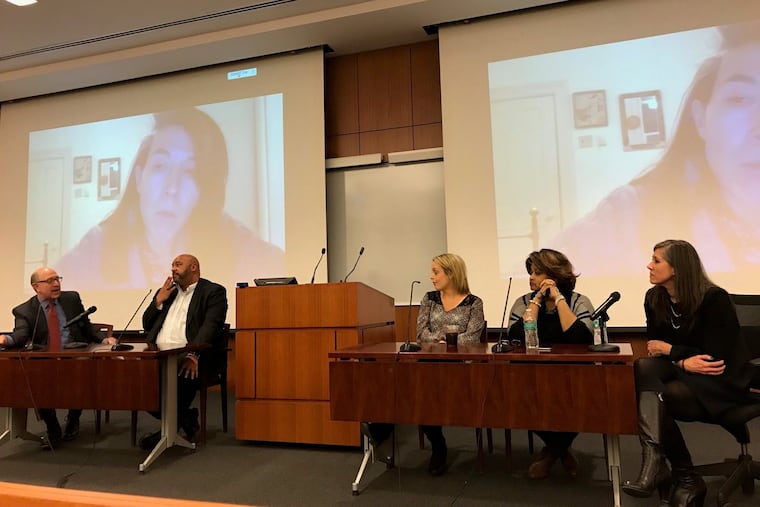Pa. law should reflect the truth about prostitution | Opinion
Adults who sell sex deserve legal protection from exploitation.

In October, Gov. Wolf signed a law to protect children from being arrested, charged, and adjudicated delinquent for prostitution. Known as a "Safe Harbor" act, it provides alternatives to delinquency for sexually exploited children who could be charged with other crimes. When it goes into effect in December, Pennsylvania law will finally reflect that it is inherently wrong to criminalize a child who is bought and sold for sex.
Adults, however, are still often mischaracterized as choosing to engage in prostitution. In reality, many people who sell sex are forced into doing so to meet basic needs — and they confront life-threatening situations. Persons who sell sex are exposed to increased rates of physical violence and experience post-traumatic stress levels comparable to that of combat veterans.
Pennsylvania has taken steps to protect adults caught in sex trafficking. In 2014, the state passed a law that provides a clear definition of human trafficking and gives prosecutors the tools to go after traffickers, third-party facilitators, and sex buyers. But the crime of prostitution still carries draconian recidivist provisions; the more a person is convicted of a crime, the higher the penalty gets. In Pennsylvania, a fourth or subsequent conviction for prostitution can lead to up to five years in prison.
These laws reflect the same myths that characterize prostitution as always being a voluntary "choice" the law must deter people from pursuing. The current system produces a gender-based inequality that perpetuates prostitution in the long run. Prostitution is typically policed by targeting those who sell sex — mostly women — and rarely targeting those who buy sex – mostly men. Data collected from the Administrative Office of Pennsylvania Courts show 1,443 arrests for selling sex in Pennsylvania and 447 arrests for buying sex in 2017. Assuming those 1,443 persons selling sex had multiple buyers a day, it means that in a single day, thousands more sex buyers, compared to sellers, got away with committing crimes.
Even when sex buyers are arrested, they often face more lenient punishment. In some counties, such as Montgomery, first-time sex buyers can complete community service to have the crime removed from their record. A first-time prostituted person, on the other hand, is typically offered probation in exchange for a conviction, without a path have that crime expunged. The system permits buyers to dodge repeat-offense penalties, while prostituted persons accrue convictions that expose them to increased punishments, including state prison sentences.
These flawed laws place prostituted persons behind bars more frequently and for longer periods of time. While incarcerated, prostituted persons are recruited by traffickers who take advantage of public inmate registries and arrest data to prey on these women's vulnerabilities. Traffickers recognize that the lack of stable options that can lead a person into prostitution remain — and are even exacerbated by — incarceration. This phenomenon is explored in The Guardian documentary "The Trap: The Deadly Sex Trafficking Cycle in American Prisons." The film exposed that traffickers recruit incarcerated women by writing them letters promising to take care of them once released, and even sending money to them to lure these women into a false sense of trust, obligation, and love.
The commonwealth acknowledges that children should not be criminalized for prostitution, because a child being sold for sex is a victim. But our laws fail to fully address adult prostitution as equally exploitative. It's time to reform our prostitution statute, and we can begin with eliminating the recidivist penalties for those who sell sex.
Shea Rhodes is director and cofounder of the Villanova Law Institute to Address Commercial Sexual Exploitation at the Charles Widger School of Law at Villanova University. Sarah Robinson and Jamie Pizzi are Justice for Victims Fellows at the CSE Institute.